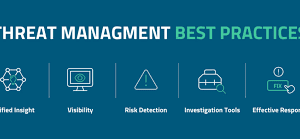The current landscape offers a highly positive outlook. However, the most recent advancements indicate that there is still much to be done. The certainty, therefore, is that even more satisfactory results can be achieved in the not-so-distant future.
Thus, a connection is drawn between Performance Management in organizations and the outlook made possible by the latest methods of automation in Information Technology (IT) and Internet of Things (IoT) systems. Cloud computing systems are among the prime examples.
Analyzing the 2024 balance sheet helps to better understand the promising scenario described. There was an international increase of more than 60% in investments in startups focused on Artificial Intelligence (AI), surpassing USD 110 billion. This figure set a new record compared to the previous year, and expectations suggest that such records will continue to be broken annually from now on.
This growth is partially attributed to the strategic planning of organizations worldwide. Another global study revealed that in some markets still striving for development in this area, on average, less than 20% of organizations were fully engaged in incorporating AI into their production routines.
These investments are closely tied to strategic planning, which highlights the role of Performance Management in organizations. This branch of management, focused on project performance, is a crucial tool in understanding the success of outcomes outlined in central planning.
Discussing this landscape is part of the expertise of Information Technology (IT) specialist Shriniwas Phalke. One of his key skills is aligning the operations of large organizations with cloud computing. With over two decades of experience in the field, he has witnessed this relationship evolve from an early stage to a consolidated presence in modern organizational routines.
“These advanced methods of system automation have saved countless work hours for operational teams engaged in projects. In the past, all team efforts were required to be concentrated on carrying out the same tasks. Now, a single person can initiate processes and monitor alerts and necessary corrections along the way,” he explained.
One notable application of this automation, as described by Shriniwas Phalke, is the automation of cloud computing plan upgrades, which used to be highly manual. He developed automation that led to innovations and improvements in this area.
These include methods to identify the rack to be upgraded and remove it from service, as well as validating the status of nodes and VMs. These innovations also check the firmware (software embedded in machines), BIOS, and boot status – all essential to the startup process of both software and hardware.
These advancements not only benefit organizational processes and machines but also improve user experience. For example, reboot automation and post-upgrade validations bring more practicality to usability. One practical improvement is the notification sent to clients or system users once the processes are complete.
“One of our achievements has been the development of an innovative cloud infrastructure monitoring solution that automates and implements self-healing in open-source cloud services like OpenStack. This agentless solution uses monitoring scripts deployed to all nodes via Chef, ensuring local checks. If issues are detected, the system attempts self-recovery. If the issue persists, automatic actions are triggered, such as opening tickets, notifying teams, and removing the server from service. The system distinguishes node types and can disable monitoring at the node, rack, or cloud region level. Using tools like Chef, StackStorm, and Grafana, the solution significantly reduces the need for manual intervention,” detailed the Indian specialist.
Career Details
With more than 23 years of experience, the professional has specialized in managing private cloud infrastructure as a service, with a focus on automation and operational efficiency. Certified as a system administrator, he has extensive experience in Python and shell scripting, optimizing processes and improving system performance.
He also gained expertise in managing large-scale environments using configuration management tools such as Chef, Ansible, and StackStorm. As an experienced Linux administrator, he excelled in maintaining high-performance servers and delivering reliable infrastructure solutions. In addition, he contributed significantly to the field through innovations, as evidenced by patents he has obtained.
“All these achievements and innovations in the field of Artificial Intelligence have been partly made possible by the successful application of Performance Management concepts. Planning, organizing, directing, and controlling are essential techniques for the positive outcomes we now see. Regardless of a project’s potential, it cannot succeed without proper management to guide its step-by-step development. In complex projects, a simple correction early on can prevent the need for complete reengineering later, which often hinders performance,” said Shriniwas Phalke, when asked what advice he would give to current and future professionals in the field.
Another Key Skill
Shriniwas Phalke also holds a strong connection to Sustainability concepts, another valuable professional asset. In addition to his successful projects, his commitment to sustainability within the strategic planning of large IT companies has translated into practical initiatives, particularly in the area of data infrastructure performance.
In recent years, he has intensified his focus on developing more reliable cooling systems for data center infrastructures. Driven by sustainability, these systems now incorporate reused water, often sourced from external environments. A similar process is used in steam-powered cooling systems, following the same principles.
Additional Milestones
Beginning his journey in 2001 in Mumbai, India, Shriniwas Phalke has since collected awards, certifications, and speaking invitations. He holds at least two significant patents in the well-established field of Information Technology, particularly cloud computing.
He has spent more than 10 years with Walmart Global Tech, working as a Staff Software Engineer in cloud computing. At the company, he is responsible for building and managing private cloud infrastructure. He also manages high-performance servers from multiple vendors with various hardware specifications. His duties include configuring and managing Linux Ubuntu servers, automating with Python and shell scripting, and developing dashboards and reports.
Academically, he earned a master’s degree in Computer Management from Pune University, India, in 2001. He also holds a Bachelor of Science in Chemistry from the University of Mumbai, India, obtained in 1999. He worked in India until 2008, after which he began contributing to the IT industry in the United States.



































